Much has been written about the Mercedes-Benz 300 SL, invariably describing it as one of the best-looking cars of all time and/or one of the best sports cars of its era. At the least, it was certainly the fastest.
Even if you aren't taken in by the automotive deification of the 'Gullwing' of 1954, it's nearly impossible – upon looking at the car and reading reports about it – to refute either assertation.
The 300 SL was created at the suggestion of one Maximilian Hoffman, an importer of European luxury cars into the US in the postwar years, to whom we also have to thank for the creation of the Porsche 356 Speedster and Alfa Romeo Giulietta Spider.
The grand tourer, carrying the internal designation W198, was essentially a road-going version of the W196 300 SL of 1952. This oddly bloated little creation, of which just 10 were built, was the first racing exploit that Mercedes-Benz had engaged in this side of the war.
Expectations were high, given the Silver Arrows' domination of grand prix racing throughout the 1930s. And the W196 lived up to them in fantastic style, taking a string of wins in its debut season that included Le Mans 24 Hours, the Nürburgring Eifelrennen and Mexico's terrifying Carrera Panamericana (victors Karl Kling and Hans Klenk are pictured below).
 The W198 used the W196's lightweight welded aluminium spaceframe chassis – the implementation of which forced the use of innovative gullwing doors – that supported the engine, transmission and axles, and clad it in a stunning, streamlined steel body. This gave the car a kerb weight of just 1251kg.
The W198 used the W196's lightweight welded aluminium spaceframe chassis – the implementation of which forced the use of innovative gullwing doors – that supported the engine, transmission and axles, and clad it in a stunning, streamlined steel body. This gave the car a kerb weight of just 1251kg.
The engine was a 3.0-litre petrol straight-six borrowed from the four-door 300 introduced in 1951. This engine was tuned, however, with a new head that allowed for larger intake and exhaust valves, and mechanical direct fuel injection in place of carburettors.

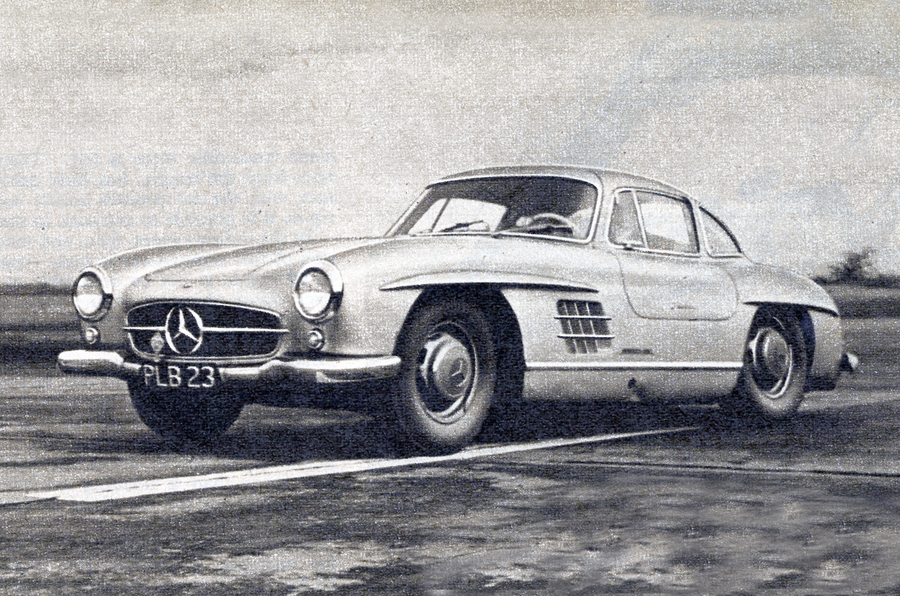

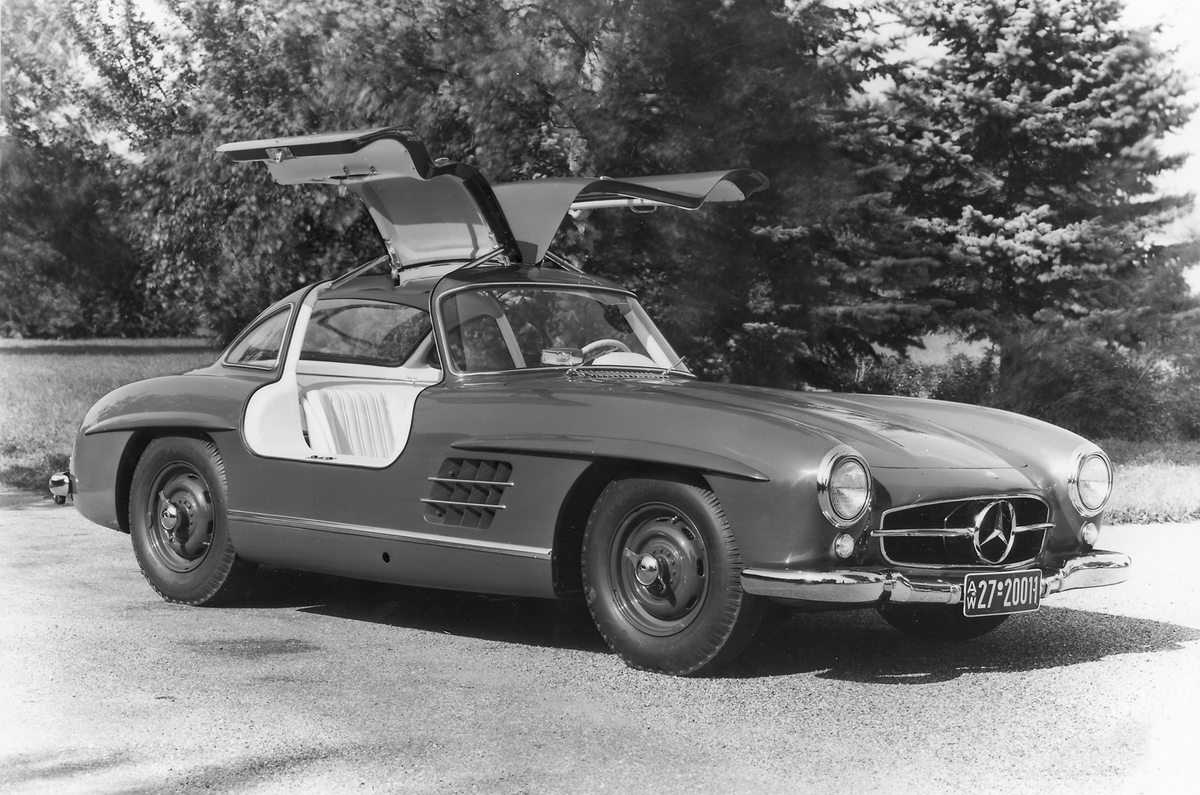



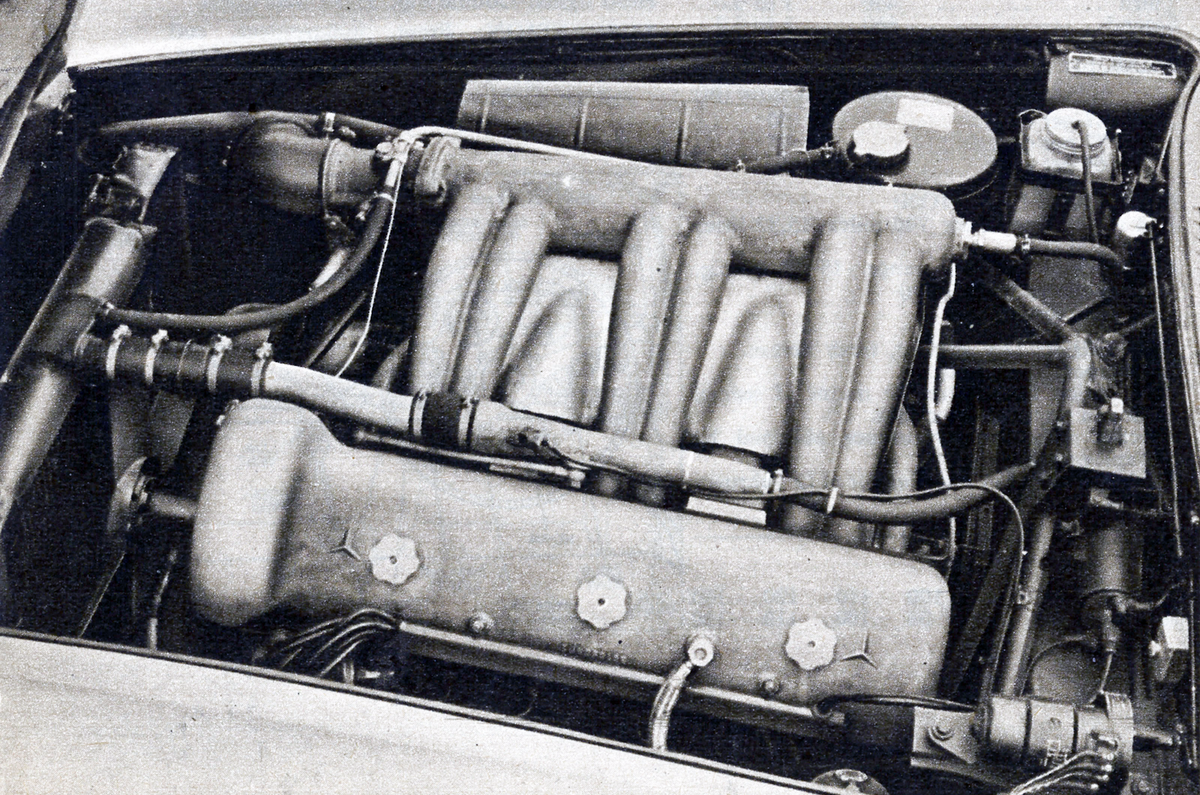

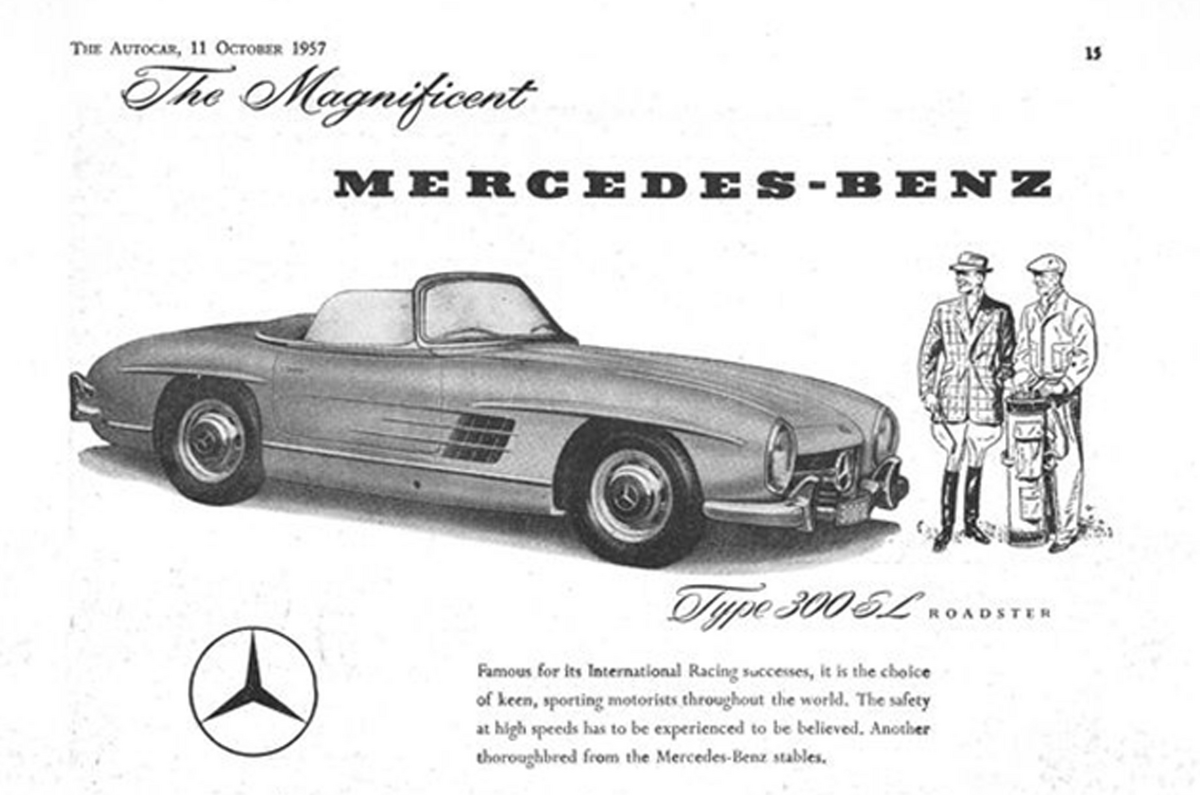

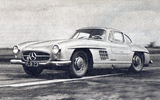










 Suspension at the front was by coil springs and double wishbones, while the rear had an independent set-up of coil springs and swinging half-axles.
Suspension at the front was by coil springs and double wishbones, while the rear had an independent set-up of coil springs and swinging half-axles. We continued: "The 300 SL is docile and tractable in dense city traffic, but there is no doubt whatsoever that its true place is outside built-up areas, where it can be allowed to come into its own.
We continued: "The 300 SL is docile and tractable in dense city traffic, but there is no doubt whatsoever that its true place is outside built-up areas, where it can be allowed to come into its own. "The acceleration is truly remarkable. The effect up to 60mph is not so noticeable as higher up when, with over 80mph showing, the rev counter needle swinging round rapidly towards the limit mark and third gear still engaged, the car fairly rockets forward.
"The acceleration is truly remarkable. The effect up to 60mph is not so noticeable as higher up when, with over 80mph showing, the rev counter needle swinging round rapidly towards the limit mark and third gear still engaged, the car fairly rockets forward. "The acceleration capabilities of the car enable the driver more frequently to overtake slower-moving traffic in safety and so cut the time for a known route by a very considerable margin and with no feeling of having misbehaved by upsetting other road users. Admittedly, they may have wondered what it was that passed them but, by that time, the 300 SL is over the hills and far away!"
"The acceleration capabilities of the car enable the driver more frequently to overtake slower-moving traffic in safety and so cut the time for a known route by a very considerable margin and with no feeling of having misbehaved by upsetting other road users. Admittedly, they may have wondered what it was that passed them but, by that time, the 300 SL is over the hills and far away!" There was a useful amount of kickback from the front wheels and apparent oversteer; "any inclination to ease the throttle round a corner and the rear of the car will tend to swing round". When driving the car round bends, "no trace of misbehaviour" was noted.
There was a useful amount of kickback from the front wheels and apparent oversteer; "any inclination to ease the throttle round a corner and the rear of the car will tend to swing round". When driving the car round bends, "no trace of misbehaviour" was noted.
Join the debate
Add your comment
A dream come true
Stepping out of this car is stepping out of a dream.
W196
Easy to see the origin of the new Mercedes 'downturned' front grilles in this!
The SLS